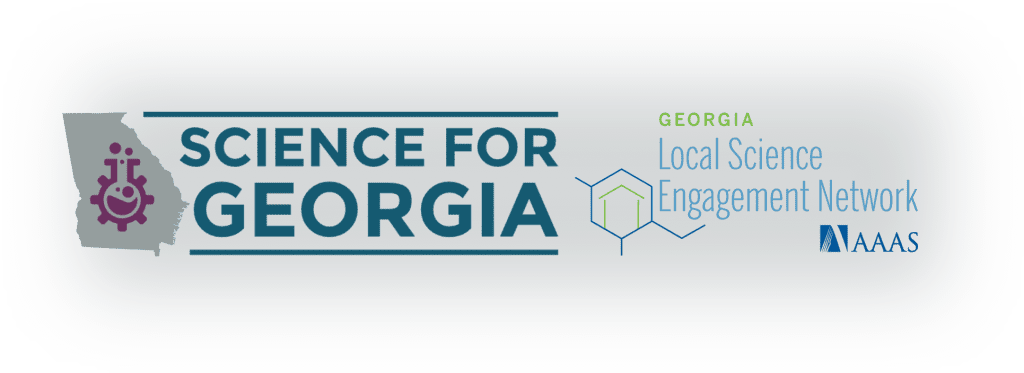Too often there are missed connections between scientists and their community. Science for Georgia, the Georgia affiliate of the AAAS Local Science Engagement Network, believes that providing an engaging environment for discussion between community leaders and scientists will lead to greater community benefits.

In June of 2020, Dr. Eri Saikawa, a professor who does interdisciplinary environmental research, was the speaker at a virtual Science for Georgia event, Science Tales and Trails. Her presentation focused on soil contamination in the Atlanta area, which has a direct impact on food and water safety. Unfortunately, the extent of the problem is not fully understood. Her lab collects samples from all over the Atlanta area to fill in gaps in the existing contamination map.
Also in attendance at this virtual event was Chelsea Thomas of the Atlanta Botanical Gardens. During the post-presentation discussion, Chelsea suggested a citizen science project – where people from all over the Atlanta area could gather soil samples for the lab. After the Science for Georgia virtual event, this conversation turned into action.
As a result of this collaboration between Chelsea Thomas and Dr. Eri Saikawa, a sample collection video was made for citizen scientists telling them how they could help their community by filling in gaps in the contamination map. Soil sample drop boxes were located at various places around Atlanta including the Atlanta Botanical Gardens, Georgia EPD, Southface Institute, Historic Westside Gardens, the Chattahoochee River Keeper, and the Gwinnett County Govt Center. People could also mail soil samples directly to Dr. Saikawa’s lab.
The project was featured on our local NPR Station. Science for Georgia takes pride in being able to provide an environment where collaborations like these are possible. We look forward to connecting more people and organizations around Georgia. Learn more about us here.
In 2021 we are going back to basics, focusing on water, food, and shelter. We will provide information about these basics, highlight partners who are working in all three of these areas, provide simple steps anyone can do to improve their life (and change the world at the same time), and finally empower people with tools and activities to advocate for change.
This soil project is a great example of what can happen when people connect. We welcome members to our network and are keen to hear more stories of science collaborations – so that we can spark even more interest and collaborations. Please contact us at info@sci4ga.org.

